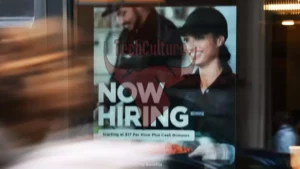In a highly anticipated event, the CEOs of major US banks are set to face intense scrutiny from senators as part of Congress’ annual oversight of Wall Street firms. Among those summoned is Jamie Dimon, the outspoken chief of the largest US bank, JPMorgan Chase. The hearing comes as the Committee’s Democratic chair, Sherrod Brown, accuses banks of “rewarding corporations that raise prices on Americans.” This accusation sets the stage for what promises to be a fiery exchange between the senators and the banking executives.
Dimon’s vocal criticism of regulators over draft capital rules is likely to be a focal point of the hearing. He has argued that these rules, if implemented, would hinder lending and economic growth. This position puts him at odds with regulators who believe that stricter capital requirements are necessary to prevent another financial crisis. With the Senate Banking Committee as the stage, Dimon will have the opportunity to defend his stance and provide insight into the potential consequences of these regulations.
The outcome of this hearing has significant implications for the future of the US banking industry. It is a rare occasion for the CEOs of major banks to be called before Congress, and the attention and pressure will be immense. As senators question these executives on a range of issues, from lending practices to executive compensation, the public will be watching closely for any signs of accountability and transparency. This event serves as a reminder of the ongoing tension between Wall Street and Main Street, and the need for effective oversight to ensure the stability and fairness of the financial system.
The upcoming hearing where US bank CEOs will be grilled by senators is a highly anticipated event. Jamie Dimon’s presence, as the outspoken chief of JPMorgan Chase, adds to the anticipation. The focus will likely be on his criticism of regulators over draft capital rules, which he believes would hinder lending and economic growth. This hearing presents an opportunity for senators to hold banking executives accountable and for the public to gain insight into the inner workings of the US banking industry.
Read more at Yahoo Finance



